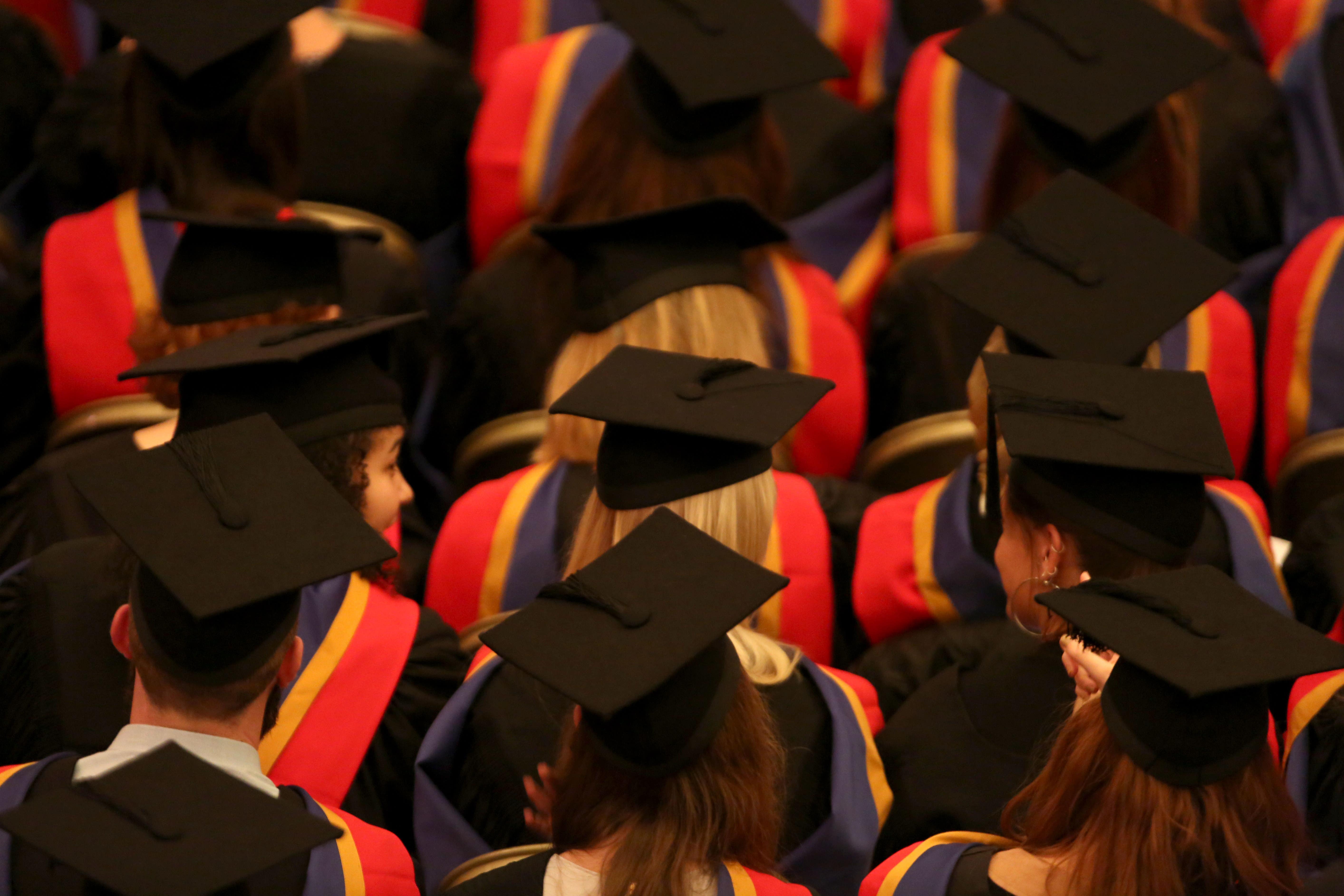‘Universities which promote free speech help society as a whole’
Arif Ahmed, from the Office for Students, said it is essential that we learn to tolerate views that we find ‘find wrong-headed and even appalling’.

Universities which promote free speech and “tolerance for disagreement” are not only helping students but the whole of society, a freedom-of-speech chief has suggested.
Professor Arif Ahmed, director for freedom of speech and academic freedom at the Office for Students (OfS), said disputes should be settled “through discussion” rather than violence for society to function.
In a speech to students at King’s College London, Prof Ahmed said it is essential that we learn to tolerate views “that we might find wrong-headed and even appalling”.
The core mission of universities and colleges is the pursuit of knowledge, and the principles of free speech and academic freedom are fundamental to that purpose
He said: “Words are not a kind of violence. Words are the alternative to violence. If we as a society forget this then we as a society are finished.
“Tolerance for disagreement is therefore a public good, like public utilities or clean air and water.
“By promoting the value of free speech, in all who pass through them, whatever subject they are studying, our universities and other higher education providers are helping not only their own students but also our society and everyone else. That is why this duty falls, and ought to fall, upon all of them.”
Prof Ahmed was appointed to the new role at the OfS, the regulator for higher education in England, in June. It came after the Higher Education (Freedom of Speech) Bill became law in May.
During a question-and-answer session with university students on Monday afternoon, he clarified that speech which “incites violence” and hatred is typically “outside of the law” and therefore “would not be protected”.
Asked about the risk of possible radicalisation through speech, Prof Ahmed acknowledged that there could be some restrictions and such speech may not be protected by the law.
But he told students: “It’s very important for people to be able to think for themselves and make up their own minds themselves.”
The Act will require universities, colleges and students’ unions in England to take steps to ensure lawful freedom of speech on campus.
This does not include unlawful speech, such as harassing others or inciting violence or terrorism.
Prof Ahmed will oversee the new complaints scheme from August 2024 and investigations where universities are accused of breaching their duties under the Act.
There are now persistent and widespread concerns that many in higher education are being silenced, either by the activity of the university or by its inactivity
In his first major speech in the role, Prof Ahmed said: “Freedom of speech and academic freedom are fundamental to higher education. The core mission of universities and colleges is the pursuit of knowledge, and the principles of free speech and academic freedom are fundamental to that purpose.”
He added: “There are now persistent and widespread concerns that many in higher education are being silenced, either by the activity of the university or by its inactivity. And that silencing may fall disproportionately on those who are most vulnerable.”
Speaking about his role, Prof Ahmed said: “I really can’t stress enough that there is no question of conforming university teaching or research to any political agenda.
“Freedom of speech is not the property of any one side in any culture war. It is far too important for that.
“It belongs by right, indeed, to the whole human race, and for those of us who enjoy it it is the most precious thing.”